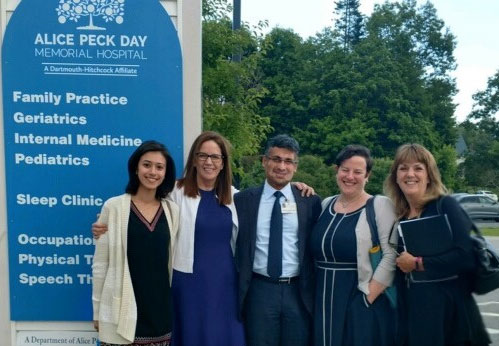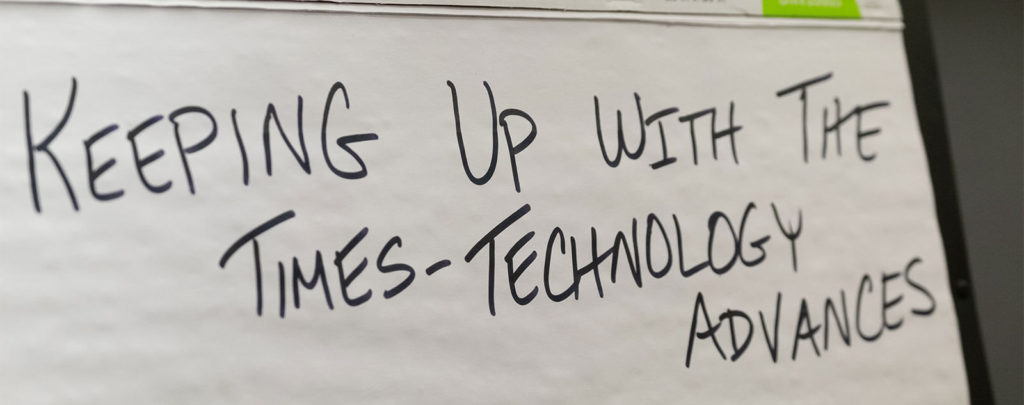With one of the highest state opioid overdose death rate in the nation, the clinicians of the Alice Peck Day Hospital in Lebanon, NH recognized they needed to provide life-saving Medication Assisted Treatment (MAT) for treating individuals with opioid use disorder (OUD).
The center was part of a five-state pilot program that provided implementation technical assistance (TA) to healthcare organizations and providers for the use and/or expansion of Substance Use Disorder (SUD) services, including with a focus on OUD.
PCSS Uniquely Equipped

“The group with full support from their leadership, committed whole-heartedly to address this critical need,” said Sanchit Maruti, MD, Addiction Psychiatrist, and a Providers Clinical Support System (PCSS) clinical expert who worked with the clinic. Colleen Labelle, MSN, RN-BC, CARN, PCSS clinical expert worked with Dr. Maruti on this initiative. PCSS is uniquely equipped to immediately go into a system “boots hitting the ground” to ramp up a treatment program and train staff. “This approach is comprehensive and highly customized to meet the specific needs of the group. And it offers really direct engagement,” Dr. Maruti said. It was important that when the initial phase is over, they will have created a sustainable program that will continue to deliver evidence-based care.
When the PCSS team met with the clinicians more than a year ago, it was for the purpose of introducing the entire staff to the concepts and evidence-based treatment of OUD. The team gave the group an SUD 101 course so that everyone on staff could understand the concept that OUD is a disease, and one that can be successfully treated with medication and counseling.
A Life-Changer
It was at that initial meeting that something profound happened, said Erin McNeely, MD, an internist at the clinic. One of their medical assistants spoke up and shared her personal experience with recovery —she had been addicted to oxycodone and went through methadone treatment prior to becoming an MA at the center. “I think that was life-changing for people,” Dr. McNeely said. “While most know someone who has dealt with addiction, the difference was seeing someone who had successfully overcome it but also someone who works with us daily. It was proof that when someone is given the resources and assistance that they need, they get better.”
The behavioral health aspect of treating OUD was missing at the clinic, which was one reason it was not part of the practice. Mental health was under-resourced and the clinic was not willing to offer treatment without behavioral health services, Dr. McNeely said. “We didn’t want to do an injustice to our patients by offering them a recovery program when we didn’t really feel like it would have been a well-equipped recovery program without the counseling aspect of treatment.” With the help of PCSS, the clinic formed a cooperative relationship with a local behavioral health provider to provide these services.
While initially some of the staff in the practice feared they would be inundated with OUD patients, that has not been realized. The clinicians have since realized their role is primary care, not a treatment center, and that offering treatment as part of primary care is exactly what they should be doing, Dr. McNeely said. “There is some recognition of our limitations, a recognition of doing what we do well, and that’s primary care.”
Without the help of PCSS, the clinic would not be adequately prepared when diagnosing and treating OUD. The monthly meetings the clinic had with PCSS “were the most instrumental piece of this process. Those sessions were fabulous. The human piece of this work, the mentorship, is what’s lacking in so many programs.”
Pleased with Progress
Now, nearly all of the providers at the clinic are waivered to prescribe buprenorphine, and while the clinicians are not required to prescribe, it is good to have the knowledge base and understanding of treating OUD.
Dr. Maruti said he is more than pleased with the clinic’s progress. “The entire group has worked diligently with sincerity and compassion to provide evidence-based sustainable MAT at their clinic,” said Dr. Maruti.
The clinic now has a “robust infrastructure in place. If more patients come, they can accommodate them.”
PCSS has expanded the pilot program and is now working in several other communities. Learn more about the implementation program.


